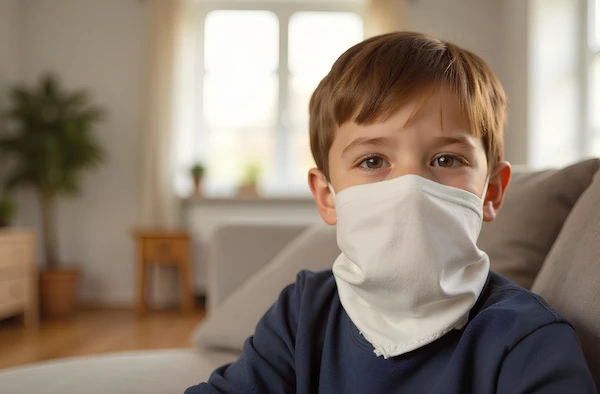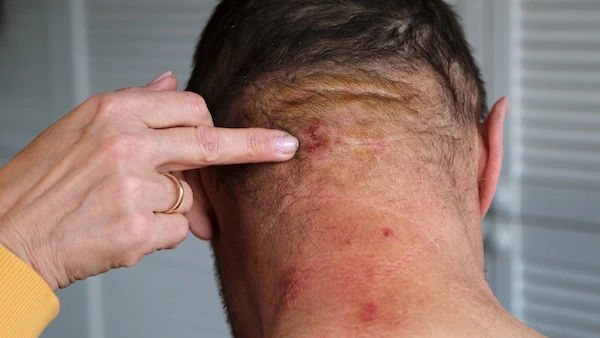Medicine, Allergy Symptoms and Treatment
know about medicine allergy, symptoms, categories, causes, and which are the most common medicines prone to allergy. Learn about the diagnosis, treatment and prevention of medicine allergies.

Written by Dr. Mohammed Kamran
Reviewed by Dr. Dhankecha Mayank Dineshbhai MBBS
Last updated on 22nd Jul, 2025

Medicine, Allergy Symptoms and Treatment
Introduction
Medicines are meant to help us heal, but sometimes, our body reacts negatively to them. If you’ve ever taken a pill or received an injection and later developed a rash, swelling, or difficulty breathing, you might have experienced a medicine allergy.
This article will help you understand what a medicine allergy is, its symptoms, causes, and how to manage it effectively.
What is a Medicine Allergy?
A medicine allergy occurs when your immune system mistakenly identifies a drug as harmful and reacts against it. This reaction can range from mild (like a skin rash) to severe (like anaphylaxis, a life-threatening condition).
Common Symptoms of Medication Allergy
Symptoms can appear within minutes to hours after taking the medicine, or sometimes even days later. Here are some signs to watch for:
Mild to Moderate Symptoms
- Skin reactions: Itching, redness, hives, or rashes
- Swelling: Face, lips, or tongue swelling
- Fever: Mild increase in body temperature
- Runny nose or sneezing
Severe Symptoms (Seek Emergency Help Immediately)
- Difficulty breathing or wheezing
- Swelling in the throat (feeling like choking)
- Dizziness or fainting
- Rapid heartbeat
- Severe skin reactions (blisters, peeling skin)
If you experience any severe symptoms, call emergency services or visit the nearest hospital immediately.
Consult a Top Allergy Specialist for the best advice
Common Medicines That Cause Allergies
While any medicine can trigger an allergy, some are more likely to cause reactions:
- Antibiotics (Penicillin, Sulfa drugs)
- Painkillers (Aspirin, Ibuprofen, Naproxen)
- Anti-seizure medications
- Chemotherapy drugs
- Contrast dyes (used in imaging tests)
What Causes a Medicine Allergy?
Your immune system defends your body against harmful substances like viruses and bacteria. In a medicine allergy, it mistakenly treats a drug as a threat and releases chemicals (like histamine) to fight it, causing allergic symptoms.
Risk Factors
The risk factors include:
- Previous allergic reactions to medicines
- Family history of drug allergies
- Existing allergies (like food or pollen allergies)
- Frequent exposure to certain medications
- Certain illnesses (like HIV or Epstein-Barr virus)
How is a Medicine Allergy Diagnosed?
If you suspect a medicine allergy, consult a doctor. They may:
1. Review your medical history (past reactions, family history).
2. Perform a skin test (small amounts of the drug are applied to check for reactions).
3. Conduct blood tests (to detect antibodies).
4. Do a drug challenge test (under medical supervision, you take small doses to observe reactions).
Never test for an allergy at home—it can be dangerous!
Treatment for Medication Allergy
The treatment options for medication allergy include:
1. Stop Taking the Medicine
If you notice mild symptoms, stop the medicine and inform your doctor.
2. Medications to Relieve Symptoms
- Antihistamines (for itching, rashes)
- Corticosteroids (for inflammation)
- Epinephrine (EpiPen) (for severe reactions like anaphylaxis)
3. Emergency Care for Severe Reactions
If you have trouble breathing or swelling in the throat, use an EpiPen (if prescribed) and seek emergency help.
4. Desensitisation (For Essential Medicines)
If you must take a drug you’re allergic to (e.g., life-saving antibiotics), doctors may slowly expose you to small doses under supervision to reduce sensitivity.
How to Prevent Medicine Allergies?
Prevention strategies for medicine allergies include:
1. Inform All Doctors About Your Allergies – Keep a list of drugs you react to.
2. Wear a Medical Alert Bracelet – Helps in emergencies.
3. Read Labels Carefully – Some medicines contain similar ingredients.
4. Avoid Self-Medication – Always consult a doctor before taking new drugs.
When to See a Doctor?
Consult a doctor if:
- You suspect a medicine allergy.
- You develop rashes, swelling, or breathing issues after taking a drug.
- You need an alternative medicine due to allergies.
Final Thoughts
Medicine allergies can be scary, but knowing the symptoms and taking precautions can help you stay safe. Always inform your healthcare providers about any past reactions, and never ignore unusual symptoms after taking a drug.
Consult a Top Allergy Specialist for the best advice
Consult a Top Allergy Specialist for the best advice

Dr. B Rachana
General Physician/ Internal Medicine Specialist
8 Years • MBBS, Fellowship in Diabetes, Fellowship in Applied Nutrition,CCEBDM(Diabetes)
Bengaluru
Apollo Clinic, JP nagar, Bengaluru

Dr. Anand Ravi
General Physician
2 Years • MBBS
Bengaluru
PRESTIGE SHANTHINIKETAN - SOCIETY CLINIC, Bengaluru

Dr. Bhethala Sharan Prakash
General Physician/ Internal Medicine Specialist
5 Years • MBBS MD
Bengaluru
PRESTIGE SHANTHINIKETAN - SOCIETY CLINIC, Bengaluru

Dr. Akhila Hb
Paediatrician
10 Years • MBBS, MD ( PAEDIATRICS), Fellowship in Asthma and Allergy
Bengaluru
Apollo Medical Center, Marathahalli, Bengaluru
(50+ Patients)

Dr Haripriya S G
Family Physician
22 Years • MBBS, PGD (Family Medicine)
Bengaluru
Apollo Clinic, JP nagar, Bengaluru



